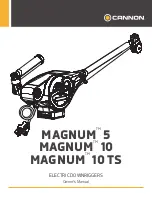
Safety Practices and Hazards
Agilent 240/280 Series AA (including Zeeman)
9
Always use a 3-wire outlet with ground connection that is adequately rated for the
load. The installation must comply with local and national safety regulations. Use
only an Agilent supplied power cord. Replace the power cord only with a cord
equivalent to the one specified in the AA Site Preparation Guide.
Do not connect the instrument to the mains power supply until you have made
sure that the operating voltage is correctly set for the mains power supply in the
specific outlet in your laboratory to which the equipment is connected.
WARNING
Electrical shock hazard
To avoid electric shock this equipment must be disconnected from the
mains supply before servicing.
Heat, vapors and fumes
Heat, vapors and fumes generated by flame, furnace and vapor generation
methods can be hazardous to personnel.
Heat, vapors and fumes must be extracted from the instrument by an exhaust
system. The instrument must be vented into a self-contained arrangement of
collector hood, ducting, and exhaust fan. The system must be vented to the
outside air, never within the building. Locate the system outlet such that the
exhaust cannot re-enter the building through any door, window, air conditioning
inlet, or other ventilator. Construct the system in accordance with local codes and
regulations for ventilation.
The exhaust system must provide an exhaust ventilation rate of at least 6 cubic
meters per minute (200 cfm). Locate the exhaust fan at least 3 meters (10 feet)
away from the flame and as close to the outlet as possible. The motor must be
mounted away from the hot gases, and plastic parts must not be used as they will
melt. Fit a back-draft damper to the outlet end of the system. Equip the exhaust
fan power supply with an indicator close to the instrument to indicate whether the
exhaust fan is on or off.
Always
switch on the exhaust fan
before
lighting the
flame.
Use fireproof ducting that is in accordance with your local fire prevention
regulations. Locate the ducting away from fire alarms, sprinkler heads, and other










































